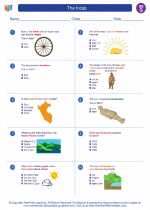Civil Liberties
Civil liberties are the basic rights and freedoms that are guaranteed to individuals as citizens of a particular country. These rights protect individuals from government actions and are essential for the functioning of a democratic society.
Key Concepts
1. Freedom of Speech: The right to express one's opinions and ideas without fear of government retaliation.
2. Freedom of Religion: The right to practice any religion, or no religion, without government interference.
3. Right to Privacy: The right to be free from unwarranted government intrusion into personal and private affairs.
4. Due Process of Law: The right to fair treatment and legal procedures in judicial proceedings.
5. Equal Protection Under the Law: The right to be treated equally and fairly by the government and the legal system, regardless of race, religion, or other personal characteristics.
Historical Development
Civil liberties have been a central concern in the development of democratic societies. In the United States, civil liberties are enshrined in the Bill of Rights, the first ten amendments to the Constitution. These amendments provide specific protections for individual freedoms and have been the subject of extensive interpretation and application by the courts.
Contemporary Issues
Current debates about civil liberties often revolve around the balance between national security and individual rights. Issues such as government surveillance, freedom of speech on the internet, and the rights of individuals in the criminal justice system continue to be hotly contested.
Study Guide
- Define civil liberties and explain their significance in a democratic society.
- Identify and describe at least three specific civil liberties protected by the Bill of Rights.
- Discuss the historical development of civil liberties in the United States, including key court cases and legislative actions.
- Analyze a contemporary issue related to civil liberties and present arguments for and against a particular policy or practice.
- Compare and contrast the concept of civil liberties in the United States with that of another country, and discuss the implications of these differences.
[Civil Liberties] Related Worksheets and Study Guides:
.◂Social Studies Worksheets and Study Guides Seventh Grade. The Incas

 Worksheet/Answer key
Worksheet/Answer key
 Worksheet/Answer key
Worksheet/Answer key
 Worksheet/Answer key
Worksheet/Answer key
